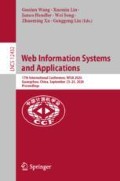Abstract
The chromosome karyotyping task is vital and indispensable but tedious work for birth defect diagnosis and biomedical research. In this work, we tackle chromosome automatic karyotyping using a multi-stages chromosome segmentation and mixed classification method. Firstly, we apply a global binary threshold-based method to segment the metaphase chromosome microscope grayscale image into several image slices, consisting of chromosome instances and chromosome clusters. Afterward, we propose a mixed chromosome classification method for identifying a given image is a chromosome cluster or corresponding instance label. After that, we use a deep learning-based approach to segment chromosome cluster images into chromosome instances and apply the mixed chromosome classification model to recognize their corresponding labels. Finally, we synthesize a chromosome karyotype from all corresponding instances and labels. In the mixed classification stage, the proposed method yields 99.53 ± 0.23% classification accuracy on the clinical dataset. In segmentation stages, the proposed method achieves 90.81% comprehensive segmentation accuracy and 85.00% instance segmentation accuracy with 90.63% \(AP_{50}\) precision. The experimental results show that our proposed method is promising for solving chromosome segmentation and classification task of the clinical chromosome automatic karyotyping.
This work was supported by Key-Area Research and Development Program of Guangdong Province(No.2019B010137003), NationalKey-Area Research and Development Program of China (2018YFB1404402), Guangdong Science and Technology Fund (No.2016B030305006, No.2018A07071702, No.201804010314), Guangzhou Science & Technology Fund (No.201804010314), VeChain Foundation (No.SCNU-2018-01).
Access this chapter
Tax calculation will be finalised at checkout
Purchases are for personal use only
References
Lin, C., et al.: CIR-Net: automatic classification of human chromosome based on inception-ResNet architecture. IEEE/ACM Trans. Comput. Biol. Bioinform. (2020). https://doi.org/10.1109/TCBB.2020.3003445
Poletti, E., Zappelli, F., Ruggeri, A., Grisan, E.: A review of thresholding strategies applied to human chromosome segmentation. Comput. Methods Prog. Biomed. 108(2), 679–688 (2012)
Shervin, M., Mehran, F., Babak, H.K.: A geometric approach to fully automatic chromosome segmentation. In: 2014 IEEE Signal Processing in Medicine and Biology Symposium (SPMB), pp. 1–6. IEEE (2014)
Lily Hu, R., Karnowski, J., Fadely, R., Pommier, J.-P.: Image segmentation to distinguish between overlapping human chromosomes. arXiv preprint arXiv:1712.07639 (2017)
Qin, Y., et al.: Varifocal-net: a chromosome classification approach using deep convolutional networks. IEEE Transactions on Medical Imaging (2019)
Ni, W., Wang, X., Song, W., Li, Y. (eds.): WISA 2019. LNCS, vol. 11817. Springer, Cham (2019). https://doi.org/10.1007/978-3-030-30952-7
Khan, S., DSouza, A., Sanches, J., Ventura, R.: Geometric correction of deformed chromosomes for automatic karyotyping. In: 2012 Annual International Conference of the IEEE Engineering in Medicine and Biology Society, pp. 4438–4441. IEEE (2012)
Wu, Y., Yue, Y., Tan, X., Wang, W., Lu, T.: End-to-end chromosome karyotyping with data augmentation using GAN. In: 2018 25th IEEE International Conference on Image Processing (ICIP), pp. 2456–2460. IEEE (2018)
Arora, T., Dhir, R.: A novel approach for segmentation of human metaphase chromosome images using region based active contours. Int. Arab J. Inf. Technol. 16(1), 132–137 (2019)
Bashmail, R., Elrefaei, L.A., Alhalabi, W.: Automatic segmentation of chromosome cells. In: Hassanien, A.E., Tolba, M.F., Shaalan, K., Azar, A.T. (eds.) AISI 2018. AISC, vol. 845, pp. 654–663. Springer, Cham (2019). https://doi.org/10.1007/978-3-319-99010-1_60
Xie, S., Girshick, R., Dollár, P., Tu, Z., He, K.: Aggregated residual transformations for deep neural networks. In: Proceedings of the IEEE Conference on Computer Vision and Pattern Recognition, pp. 1492–1500 (2017)
Dhruv, M., et al.: Exploring the limits of weakly supervised pretraining. In: Proceedings of the European Conference on Computer Vision (ECCV), pp. 181–196 (2018)
Shu, L., Lu, Q., Qin, H., Shi, J., Jia, J.: Path aggregation network for instance segmentation. In: Proceedings of the IEEE Conference on Computer Vision and Pattern Recognition, pp. 8759–8768 (2018)
Shaffer, L.G., Jean, M.-J., Schmid, M., et al.: ISCN 2013: an international system for human cytogenetic nomenclature (2013). Karger Medical and Scientific Publishers (2013)
Yang, Y., Igor, G., Boris, G.: Large batch training of convolutional networks. arXiv preprint arXiv:1708.03888 (2017)
He, K., Zhang, X., Ren, S., Sun, J.: Deep residual learning for image recognition. In: Proceedings of the IEEE Conference on Computer Vision and Pattern Recognition, pp. 770–778 (2016)
Author information
Authors and Affiliations
Corresponding author
Editor information
Editors and Affiliations
Rights and permissions
Copyright information
© 2020 Springer Nature Switzerland AG
About this paper
Cite this paper
Lin, C., Zhao, G., Yin, A., Ding, B., Guo, L., Chen, H. (2020). A Multi-Stages Chromosome Segmentation and Mixed Classification Method for Chromosome Automatic Karyotyping. In: Wang, G., Lin, X., Hendler, J., Song, W., Xu, Z., Liu, G. (eds) Web Information Systems and Applications. WISA 2020. Lecture Notes in Computer Science(), vol 12432. Springer, Cham. https://doi.org/10.1007/978-3-030-60029-7_34
Download citation
DOI: https://doi.org/10.1007/978-3-030-60029-7_34
Published:
Publisher Name: Springer, Cham
Print ISBN: 978-3-030-60028-0
Online ISBN: 978-3-030-60029-7
eBook Packages: Computer ScienceComputer Science (R0)


